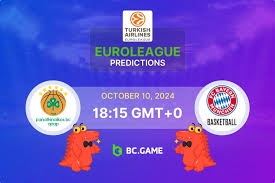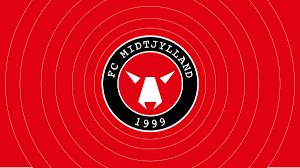
EuroLeague Odds
The EuroLeague is a prestigious basketball tournament that features the top teams from across Europe, showcasing elite talent and thrilling competition. As fans eagerly follow their favorite clubs and players, many also look to place bets on the games, hoping to gain an edge through understanding EuroLeague odds. This blog post will explore the intricacies of betting in the EuroLeague, the factors affecting these odds, strategies for successful wagering, and how to analyze the data New88 available to make informed decisions. Whether you are a seasoned bettor or new to the scene, this comprehensive guide will equip you with the knowledge needed to navigate the exciting world of EuroLeague odds.
Understanding EuroLeague Odds
To effectively engage in betting on the EuroLeague, it is crucial to grasp how odds work. Betting odds reflect the probability of a particular outcome occurring in a game. They can significantly influence decisions made by bettors. In this section, we will delve into the different types of EuroLeague odds, how they are calculated, and what they mean for those placing wagers.
Types of Betting Odds
Betting odds come in various formats, notably decimal, fractional, and moneyline odds. Each format conveys similar information but may suit different preferences and markets.
Decimal Odds
Decimal odds are widely popular, especially in Europe. They indicate the total payout, including the original stake, for a winning bet. To calculate potential returns, simply multiply your stake by the odds.
For example, if a team has decimal odds of 2.50 and you wager €10, your total return would be €25 (your initial stake plus €15 in profit).
Understanding decimal odds allows bettors to quickly assess potential gains on their investments. They provide clarity and are straightforward to use, making them a preferred choice for many.
Fractional Odds
Fractional odds are more traditional and often used in the UK. They represent the profit relative to the stake. For instance, odds of 5/1 imply that for every €1 wagered, a bettor would win €5 if successful.
While fractional odds can seem more complicated at first, they also allow for deeper insights into potential earnings. Bettors can easily calculate profits by multiplying their stake by the fraction’s numerator.
Moneyline Odds
Moneyline odds are predominantly utilized in American sports betting. A positive number indicates how much profit a bettor would earn on a €100 stake, while a negative number shows how much needs to be wagered to win €100.
These different formats cater to diverse betting audiences, each offering unique advantages. As a bettor, understanding which format resonates most with you can enhance your betting experience.
Calculating Implied Probabilities
Implied probability is a concept closely tied to betting odds. It represents the likelihood of an event happening, as inferred from the odds provided by bookmakers.
To convert odds into implied probability, you can use the following formulas:
- For decimal odds: Implied Probability (%) = (1 / Decimal Odds) x 100
- For fractional odds: Implied Probability (%) = Denominator / (Numerator + Denominator) x 100
- For moneyline odds:
- Positive Moneyline: Implied Probability (%) = 100 / (Odds + 100) x 100
- Negative Moneyline: Implied Probability (%) = (-Odds) / (-Odds + 100) x 100
Knowing the implied probabilities helps bettors evaluate whether they perceive value in the odds being offered. If a bettor believes that a team has a higher chance of winning than the implied probability suggests, this could indicate a smart betting opportunity.
Factors Influencing EuroLeague Odds
Many variables influence EuroLeague odds, which can lead to fluctuations throughout the season. Understanding these factors is essential for bettors seeking an edge in their wagers.
Team Form and Performance
One of the most significant factors affecting odds is a team’s current form. Analysts and oddsmakers closely monitor how well teams perform in recent matches. Winning streaks or losing slumps can greatly influence public perception and, consequently, the odds.
Beyond merely wins and losses, considering the quality of opponents faced plays a vital role. A team may have a poor record, yet if they were up against tough opponents, this context can alter the narrative around their performance.





